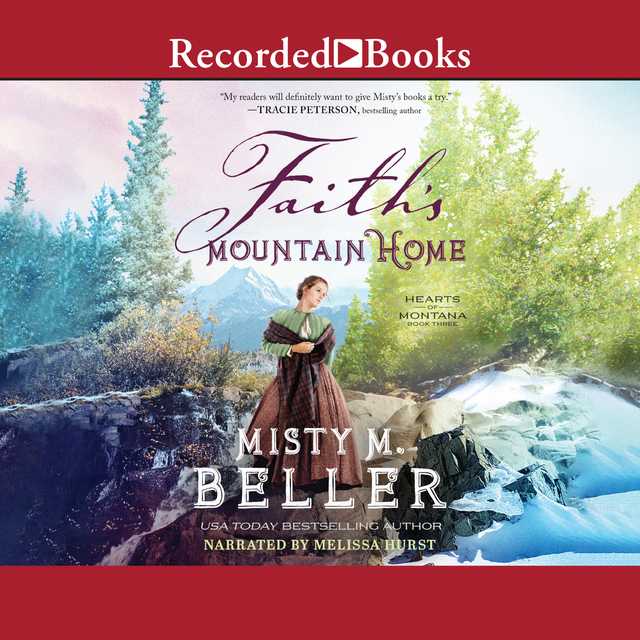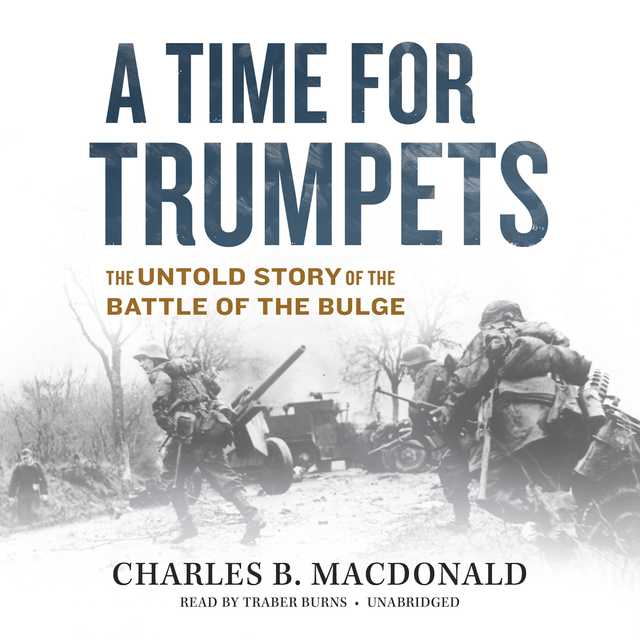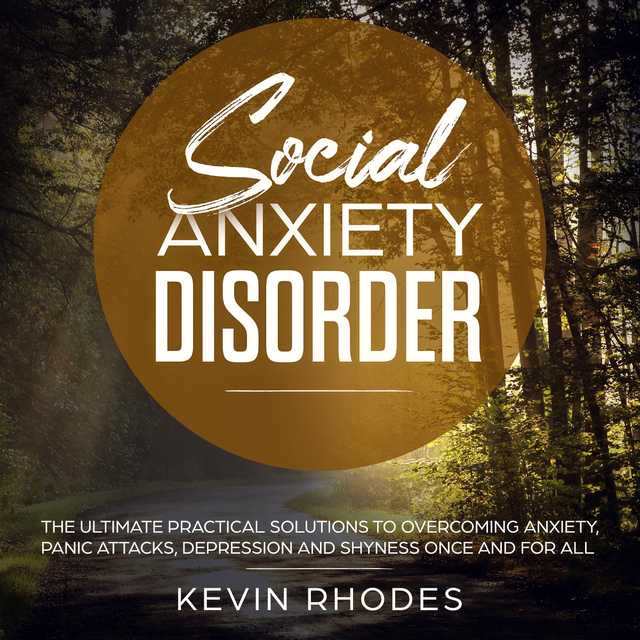Broke, USA Audiobook Summary
From the author of the New York Times Notable Book of the Year Drive By comes a unique and riveting exploration of one of America’s largest and fastest-growing industries–the business of poverty. Broke, USA is a Fast Food Nation for the “poverty industry” that will also appeal to readers of Barbara Ehrenreich (Nickel and Dimed) and David Shipler (The Working Poor).
Other Top Audiobooks
Broke, USA Audiobook Narrator
Scott Sowers is the narrator of Broke, USA audiobook that was written by Gary Rivlin
Gary Rivlin is a Pulitzer Prize-winning investigative reporter and the author of nine books, including Katrina: After the Flood. His work has appeared in the New York Times, Newsweek, Fortune, GQ, and Wired, among other publications. He is a two-time Gerald Loeb Award winner and former reporter for the New York Times. He lives in New York with his wife, theater director Daisy Walker, and two sons.
About the Author(s) of Broke, USA
Gary Rivlin is the author of Broke, USA
More From the Same
- Author : Gary Rivlin
- Becoming an Ethical Hacker
- Saving Main Street
- Becoming a Venture Capitalist
- Katrina
- Publisher : HarperAudio
- Abraham
- American Gods [TV Tie-In]
- Dead Ringer
- House of Sand and Fog
- Prey
Broke, USA Full Details
| Narrator | Scott Sowers |
| Length | 12 hours 46 minutes |
| Author | Gary Rivlin |
| Category | |
| Publisher | HarperAudio |
| Release date | August 24, 2010 |
| ISBN | 9780062049391 |
Subjects
The publisher of the Broke, USA is HarperAudio. includes the following subjects: The BISAC Subject Code is General, Social Science
Additional info
The publisher of the Broke, USA is HarperAudio. The imprint is HarperAudio. It is supplied by HarperAudio. The ISBN-13 is 9780062049391.
Global Availability
This book is only available in the United States.
Goodreads Reviews
Will
April 17, 2019
Rivlin has pulled together a lot on information on several types of enterprises that exist to exploit the poor people of our country. Although pawnshops are noted in the sub-head, they receive little attention. Of far greater concern here are check cashing stores, (tax) Return Anticipation Loans, or RALs, rent-to-buy shops and predatory sub-prime lending. It is quite clear that small loans make huge profits. You will be shocked when you learn what actual APRs are being charged.I was not unaware, in general, of the issues Rivlin covers, but he goes into this range of businesses in serious detail and I learned a lot. He interviewed many players from businesses to consumer advocates to clients. I was reminded of the recent Michael Lewis release, The Big Short. Here also we get to meet people who had the prescience to see what was possible, on both sides, before the enterprise became mega. There are heroes and villains in Broke, USA, and some who shade towards gray, but you will never look at your neighborhood check-cashing place the same way again. I was most intrigued by a section in which Rivlin shows that at the same time that a major bank was denying loans in a particular neighborhood, and closing its branches, it was buying up sub-prime lending shops in the same area, without attaching the familiar corporate logo to them, so was more than willing to lend, but only at usurious rates. Rivlin demonstrates that there is no economic basis for the extreme rates charged to poor people for loans. Lenders can make money by charging only a modest amount above the rates available to people with good credit. This is a hard-hitting and important work, and deserves a prominent place in every discussion of the Consumer Financial Protection Bureau, and a hearing in every state and locality with an interest in protecting its citizens from the jaws of predators. It will make you angry. It should.=============================EXTRA STUFFJanuary 24, 2012 - Another way in which predators feed on the poor and middle class in my owed private Idaho - Zombie debt creeps onward in Idaho courtsMay 17, 2012 - A Barbara Ehrenreich article on how local governments and the private sector are squeezing the poor. Dickens would find 21st Century America far too familiar.October 22, 2014 - A NY Times report on the increasing impact of foxes in hen-houses, States Ease Interest Rate Laws That Protected Poor BorrowersJanuary 24, 2018 - Barbarians inside the gates - The CFPB Is Now the Predatory Lender Protection BureauThe Consumer Financial Protection Bureau (CFPB) was once an agency dedicated to preventing banks and credit-card companies from scamming ordinary Americans. Now, it is an agency dedicated to protecting potential financial scammers from legal penalties.February 7, 2019 - Truthout - Trump Moves to End Consumer Protections From Payday Lenders - by Jake Johnson - The sort of horror we know to expect from this administrationApril 16, 2019 - Mick Mulvaney’s Master Class in Destroying a Bureaucracy From Within - By Nicholas Confessore - As so often happens at the NY Times, the headline offers a tilt that is a bit misleading. Use of the buzzword bureaucracy in the title suggests that Mulvaney is out to reduce that other oft-cited, rarely-justified bête noire, waste and mismanagement. The article is actually a blow-by-blow look at how Mulvaney is dismantling the agency that was set up specifically to protect consumers from predatory financial institutions. Mulvaney is more than happy to side with wolves over sheep. It is well worth checking out how the destruction of our democracy is being implemented.
Miriam
December 14, 2011
Given the plethora of books with lofty top-down stories about the 2007 - 2008 financial crash, this book comes as a welcome reality check. It's a ripping yarn of greed, injustice, debt slavery, white knights and dark knaves... without, so far, a happy ending. Rather than focusing on the glamorous boardroom battles of the 0.001%, it dwells on the financial affairs of the bottom 75% - those who meet some or all of the following criteria: wages have fallen;make less than the median income;have poor credit or no established credit;live paycheck-to-paycheck or have fixed incomes; stuck in depressed communities; burdened with medical expenses and school loans; unemployed, erratically employed or underemployed; lack decent education and marketable skills;have unfavorable skin colors, gender, age, disabilities, etc... If you're wondering why the Obama administration is choosing to spend its scarce political capital on a Consumer Financial Protection Agency, most of your answers lie within these pages. There are some manipulative anecdotes, and the patterns of exploitation in each specialized loan industry (payday lending, pawnshops, tax refund loans, sub-prime mortgages, etc.) get repetitive, but Rivlin draws a clear picture of a financial system that exists to help only those who don't need more money.A $500 payday loan or emergency second mortgage, taken by a family with no other means of securing credit, multiplies into tens of thousands over a few years based on usurious interest and falsely assessed fees, resulting in a foreclosure that (in a rising real estate market) could be quickly turned around for even greater profit. Shady store-front lenders, as parts of large national franchises, wage legal and PR wars on community organizations and successful non-profit lenders to block restrictive legislation. The franchised store-front lending chains are so profitable that they get bought by the big national banks, who previously couldn't be bothered to maintain branches in depressed communities. The banks, in turn, enlarge the "innovative" practices of these small lenders, and work to distort the legislative and regulatory processes even further. The big national banks start selling the collateralized debt from the store fronts... which goes sour when workers lose jobs in financially starved communities, and foreclosed homes can't be sold profitably any more. And the next thing you know, it's the fault of those irresponsible poor people [and the middle class, when the predators discovered that the suburbanites could be exploited just as easily in the absence of any laws to the contrary]. It will become much harder to give credence (let alone moral suasion) to those who blame families facing home foreclosures. Rivlin builds the historical narrative from the Reagan era onward to the present, laying the foundations for blame along the way. It's going to take a long time, a fundamental rethinking of American small finance (third-world microloans, anyone?) and the removal of the responsible political factions to fix.
Siobhan
March 16, 2011
If the information in this book had been available earlier, the economic mess of the past few years could well have been avoided.That's one lesson from this book. Another is that while rich people have been gorging on an ever larger share of the pie, they have been doing so not merely by cutting wages, shipping jobs overseas and making sure their taxes reach ever lower levels. They've also acheived their goals by making money off the poor through loan sharking in a variety of forms.Gary Rivlin brings a cool eye to his subject. It could have done with somewhat tighter editing, but overall, it's quite good.It's no secret that the subprime loan situation combined with the housing bubble to bring the US to its economic knees. He demonstrates quite clearly that there is no end to their greed. Unchecked by regulations thanks to 30 years of trickle-down economics, the unscrupulous financiers pushed more and more people out of their homes and into poverty.What next? It's hard to imagine that the US can once again become a prosperous country when one in four children are growing up in poverty and when the American dream has become the American nightmare. As for those who foisted this tragedy on the rest of us, one would hope that they can stop thinking only of themselves and whether to vacation in the Caribbean or Tahiti this year and instead focus on undoing the damage they've done.
Anita
February 08, 2017
The stories of how industries the poor utilize often lead them to financial ruin. Payday loans, car title loans, subprime mortgages, check cashers, pawn shops and their exorbitant interest rates. It's also a story of the organizations trying to help the poor by loaning them money at reasonable rates and trying to get the legislative branch to care.The problem is a combination of financial illiteracy and outright fraud against people who can least afford it. Kind of a bummer of a read. Books about poverty are almost always bummers to read. I can't think of any that I've read that weren't.
Desiree
August 10, 2010
Timely book on more ways to get rich by screwing the poor! Excellent review of the people behind the pawnshops, check cashing and payday loan industries. We used to have usury laws, but these industries have been able to get around them and charge unbelievably high apr rates on short term loans! How's 391% sound to ya?????The perfect customer for a subprime lender "would be an uneducated woman who is living on a fixed income - hopefully from her deceased husband's pension and Social Security - who has her house paid off, is living off credit cards and having a difficult time keeping up with her payments.""It may sound like loan sharking, but in most of America, it's perfectly legal." "A typical loan shark only charges an APR of around 150 percent."Hmmmmmm, if you are ever tempted to use one of these predatory businesses, RUN down to your local library and borrow a copy of this book instead!Our government should be ashamed of itself!
Damon
December 22, 2019
This book takes a potentially dry, economic topic-the subprime lending behind the Great Recession of 2008- and turns it into a fascinating morality tale of how entire industries exist to make money off of poorer Americans. An excellent history of the crisis, and some thought-provoking commentary along the way. It'll make you mad, and make you examine your thinking about how the poor should be protected financially, perhaps even from themselves.
Sally
April 01, 2015
For years we've been hearing about the welfare queen and all the reasons why poor people just need to "pull themselves up by their bootstraps. This compelling book explains (in part) why we need poor people. Because without the poor who would these businesses exploit. Important reading
Susan
May 18, 2018
Slightly old now (2010) the information holds true today nonetheless. Rivlin investigates what he calls Poverty, Inc, the predatory lending practices that eventually broke not just people, but the entire country, through endless greed in 2008.You heard the names, but unless you used them, you had no idea. They’re as familiar as your television: Phil Rizzuto for The Money Store, Champion Mortgage (when your bank says no, Champion says Yes), City Corp, Rent a Center, H&R Block, Household Finance, CheckNGo, Cash America, Check Into Cash, Jackson Hewitt, and so many more – every last one a ripoff artist who preyed relentlessly on people who could not afford to pay, had poor credit, lived on fixed income, or fell on bad times, charging rates as high as 400% APR. Yes, Four Hundred Percent. And they got away with it for years, until some states, and then Congress, started stepping in, but too late to avoid the catastrophe of 2008.Most of them arose as usury check-cashing schemes, though as they saw it (and rightfully so, if you paid back on time) they were cheaper than a bounced check – charging upwards of $20 for every $100 borrowed. But not everyone could, out of work, underemployed, or hit with a mega health or car bill. They looked for neighborhoods that were struggling, poor to lower middle class, and they’d set up check-cashing stores, and pawn shops, and instant-tax-refund (yes, that H&R Block scheme is really a payday loan at exhorbitant rates because you can’t wait 2 weeks for that cash). Then they started on home loans, seeking out elderly who had paid off or nearly paid off their houses, were on fixed incomes, and gouged them with fees, insurance-addons, “equity” loans on top of what they were borrowing, and when actual vs. payments came in, they were often $400 more than agreed on, and within months people would lose their homes to the agency – which also owned the collection department, and the insurance collector, and the home inspectors, a streamlined machine for robbing people of their homes.All of this got rolled in with the sub-prime mortgage fiascos as banks tried to cash in on poverty services, selling risky loans through crooked means meant to defraud people and take their homes, then sell them again, through higher interest rates, balloon mortgages (after two years, the payments ballooned to rates the people couldn’t afford), and adjustable-rate mortgages (the mortgage payments fluctuated with the stock market). “Sub-prime” meant anyone with a credit rating under 630, and many times people who qualified for lower-interest rate mortgages of traditional means were sold sub-primes anyway, to reap more money off them. The crookedness and usury and plain monstrous feeding on the people barely scraping by will make your hair stand on end. You want to punch someone. I’m thrilled to never have been suckered into any of it, and that we steered clear of such tricks, though I know some who fell for it. It’s digusting, immoral, and just plain mean. And, like every type of decomposing of America, it seems to have started in Ohio, a place I’m liking less and less and less. Part of it is Ohio was heavily industrial, and all the jobs up and left, leaving a lot of people with no jobs and no hope (and hooked on Oxycontin), places like Dayton and Columbus, which were hit with the worst rate of foreclosures in the nation in 2007. Add in a ridiculous affinity for libertarianism, and there’s a whole lot of homeless and destitute people scratching their heads.The book is thorough, but not dull. It’s easy to follow if a bit repetitive, simply because of the sheer numbers of predatory lenders, and how easy and fast it was to start one up with as little as 10,000$ in cash. No matter what your situation or income level, you will be a much wiser person for reading this book. Now I’m going back and rewatching The Big Short to see if any of it is mentioned there, and so far I’ve found one crossover, acknowledging Countrywide Financial as one of the worst of the offenders.
Jerry
December 29, 2019
Every which way to stiff the poor and the working poor is here-subprime mortgage loans, payday lenders, check cashing storefronts, auto title loans, rapid tax refunds, and rent-to-own joints. Chapter eleven-The Great What-If- is a great primer on the subprime predatory travesty of the early 2000's. Banks- Wells Fargo, Bank of America, etc- closed shop in Atlanta's black sections, then reopened with their subprime subsidiaries. They trolled for poor and old homeowners and sold them refinances for home repairs that were never done. And these refinances were infected with outrageous fees, predatory- and lied about- interest rates and hidden credit insurance that accrued that same interest. Georgia passed a partial predatory lending bill, but a Republican governor-Sonny Perdue (now our Secretary of Agriculture), along with legislators frightened by dire predictions of credit rating companies (the same companies that for a price later gave AAA ratings to toxic mortgage bundles and thus was a major player in the 2008 recession) gutted the law. Thus, foreclosures skyrocketed in those Atlanta areas. Triple digit apr's (391 to 680), the inaction of Ayn Randian Alan (the Sgt. Schulz "I see nothing" of the Federal Reserve) Greenspan, the refusal of other federal regulators to regulate, state Republican legislators who not only did nothing for the most vulnerable of their citizens but prevented cities from legislating themselves, all are discussed. And the toxicity of the other predatory schemes-payday lenders, check cashing, etc- Rivlin examines, primarily through interviews. Greed is everywhere, but what struck me most is its combination with shamelessness, heartlessness and pure meanness. And as one person says, if you try to screw the rich, they have friends. If you try to screw investors, they also have friends. But you can always screw the poor, because nobody cares about them.
Bryan
December 29, 2018
Challenge 17 on the BookRiot 2019 Read Harder Challenge list is "A business book." For this challenge I read Gary Rivlin's Broke, USA: from pawnshops to Poverty, Inc,: how the working poor became big business. Published in 2010, the book documents many of the factors that led to the 2008 recession, but, of couse, could not predict what has happened in the ten years since. Certainly the hardest read I have experienced in these challenges, the book is a depressing tale of preditory lending practices including pawn, payday loans, car title loans, instant tax refunds which should more properly be known as refund anticipation loans, and the subprime mortgage loans that by 2008 virtually all major banking institutions were supplying.
Adam
May 12, 2020
DEVIL OR NEIGHBORHOOD HERO? Your answer will reveal your credit score. My 👂 picked up on.... 👇sold...but we have othersI sowed a seed and harvested a diamondWoman are meant to loved not understoodIt's very expensive being poorCadillac Rich Fringe financial sectorIt's a nickel and dime business but the good news is there's a lot of nickels and dimes to be hadI have figured out how to get very rich off those with very littleWhat you can't do yourself you can hire to get done Blue sky potential Couch payments, when the repo man accepts sex in lieu of payment I make money the old fashioned way, I beg for itYou live in a perpetual state of financial uncertainty I'm in the poverty businessPoverty industry Particularly galling I do financial cosmetic surgery
Carol
March 21, 2021
“The problem with reporting on the poverty business is that it’s so broad and multifaceted”. It was hard to figure out if I should give this book three or four stars. It was good but so depressing. These people taking advantage of the poorest in this country. All the fees and outrageous interest rat
Brian
April 07, 2021
Accurate. Having used payday loans and then ghostwriting for a payday lender, the cycle of debt is a very real reality. Thus, I really enjoyed the analysis Rivlin presents in this book. I have the paperback and the audiobook, and listening to it presents its content with regional accents (such as using a southern drawl) for the people who the author interviewed. Not my cup of tea. Understanding predatory lending though has helped me save money and stay away from the vortex of drowning in incredibly expensive debt. Again, very accurate book.
Tim
November 03, 2021
Very informative and disturbing. Broke, USA will completely “open your eyes” to the inner workings of “the poverty industry.” Although I have known about many of the “shady” businesses mentioned, there are so many others that I hadn’t thought of as such - until now. I recommend this read to anyone who not only has a need or desire to educate themselves about these unsavory and (many times) illicit “businesses,” but also to anyone who (like I do) feels obligated to teach and inform others.
akhivae
March 27, 2021
Aside from the fact that the author couldn't choose a title for his book so he chose three I enjoyed this extremely through history on the pay day loan/sub prime industry. This book however focusses more on the history of pay lending and other financial legal scams targeting the poor. Their rise, their stagnation and the history of their opposition. I mistook it going in for being more along the lines of books like 'Evicted' which focus more on the ground realities of those impacted.
Most Popular Audiobooks
Frequently asked questions
Listening to audiobooks not only easy, it is also very convenient. You can listen to audiobooks on almost every device. From your laptop to your smart phone or even a smart speaker like Apple HomePod or even Alexa. Here’s how you can get started listening to audiobooks.
- 1. Download your favorite audiobook app such as Speechify.
- 2. Sign up for an account.
- 3. Browse the library for the best audiobooks and select the first one for free
- 4. Download the audiobook file to your device
- 5. Open the Speechify audiobook app and select the audiobook you want to listen to.
- 6. Adjust the playback speed and other settings to your preference.
- 7. Press play and enjoy!
While you can listen to the bestsellers on almost any device, and preferences may vary, generally smart phones are offer the most convenience factor. You could be working out, grocery shopping, or even watching your dog in the dog park on a Saturday morning.
However, most audiobook apps work across multiple devices so you can pick up that riveting new Stephen King book you started at the dog park, back on your laptop when you get back home.
Speechify is one of the best apps for audiobooks. The pricing structure is the most competitive in the market and the app is easy to use. It features the best sellers and award winning authors. Listen to your favorite books or discover new ones and listen to real voice actors read to you. Getting started is easy, the first book is free.
Research showcasing the brain health benefits of reading on a regular basis is wide-ranging and undeniable. However, research comparing the benefits of reading vs listening is much more sparse. According to professor of psychology and author Dr. Kristen Willeumier, though, there is good reason to believe that the reading experience provided by audiobooks offers many of the same brain benefits as reading a physical book.
Audiobooks are recordings of books that are read aloud by a professional voice actor. The recordings are typically available for purchase and download in digital formats such as MP3, WMA, or AAC. They can also be streamed from online services like Speechify, Audible, AppleBooks, or Spotify.
You simply download the app onto your smart phone, create your account, and in Speechify, you can choose your first book, from our vast library of best-sellers and classics, to read for free.
Audiobooks, like real books can add up over time. Here’s where you can listen to audiobooks for free. Speechify let’s you read your first best seller for free. Apart from that, we have a vast selection of free audiobooks that you can enjoy. Get the same rich experience no matter if the book was free or not.
It depends. Yes, there are free audiobooks and paid audiobooks. Speechify offers a blend of both!
It varies. The easiest way depends on a few things. The app and service you use, which device, and platform. Speechify is the easiest way to listen to audiobooks. Downloading the app is quick. It is not a large app and does not eat up space on your iPhone or Android device.
Listening to audiobooks on your smart phone, with Speechify, is the easiest way to listen to audiobooks.






























